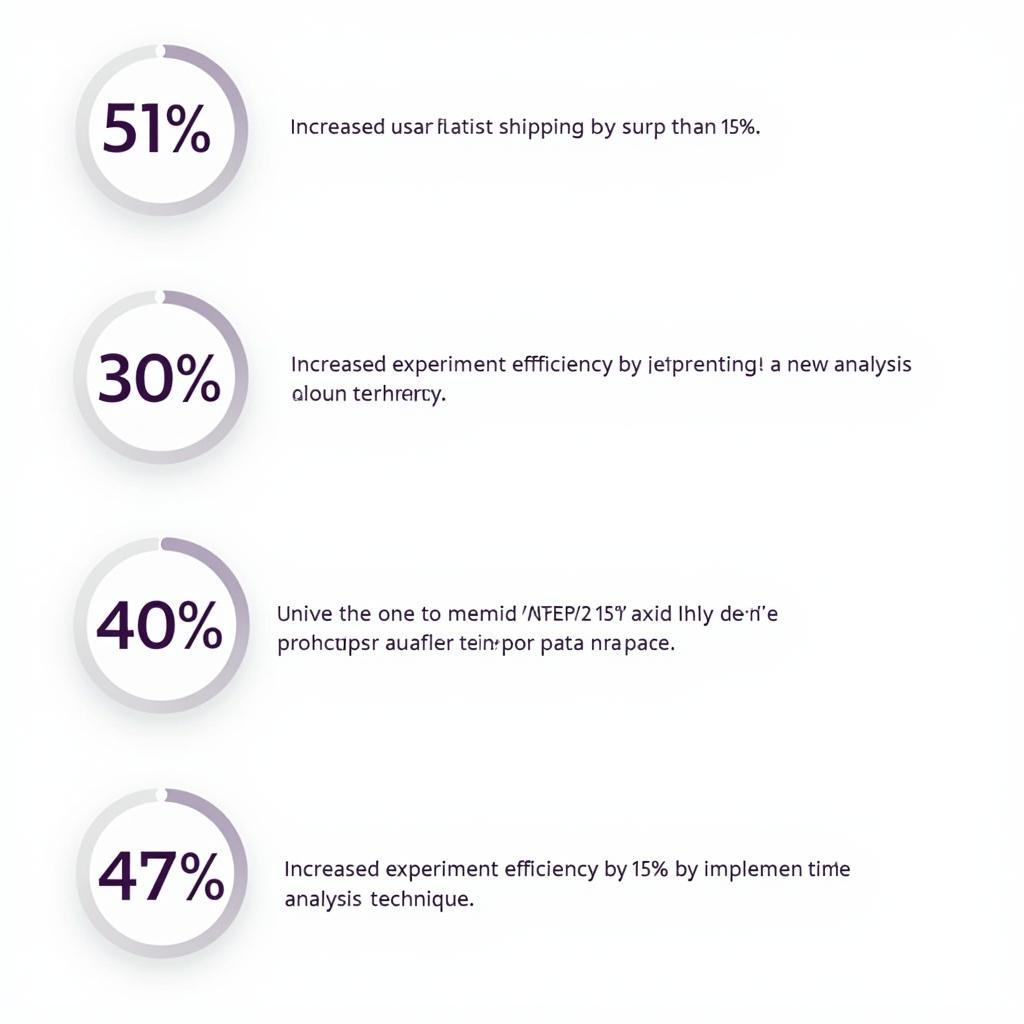Successfully highlighting your research experience on your resume can be the key to unlocking exciting career opportunities, particularly in fields that value analytical skills, problem-solving abilities, and a dedication to knowledge exploration. Whether you’re a seasoned academic or a recent graduate, presenting your research experience effectively is crucial for making your resume stand out. This guide provides a detailed approach to crafting a compelling research resume.
Understanding the Importance of Showcasing Research Experience
Before delving into the specifics of crafting the perfect research resume, it’s important to understand why employers value this experience so highly. Research, by its very nature, demands a unique set of skills that are transferable to a wide range of professions.
 Research Skills on a Resume
Research Skills on a Resume
Here are some key reasons why research experience is highly valued:
- Analytical Skills: Research involves collecting, analyzing, and interpreting complex data, demonstrating your ability to think critically and solve problems effectively.
- Project Management: From designing studies to executing them and analyzing the results, research often requires meticulous planning, organization, and time management skills.
- Communication Proficiency: Effectively communicating research findings is crucial, showcasing your ability to articulate complex information in a clear and concise manner, both in writing and through presentations.
- Attention to Detail: Research demands a high level of accuracy and precision, reflecting your commitment to producing thorough and reliable work.
Tailoring Your Resume to Highlight Research Experience
A common mistake that many job seekers make is submitting a generic resume for every position they apply for. However, to truly capture the attention of recruiters, it’s essential to tailor your resume to each specific opportunity. Here’s how you can effectively tailor your resume to highlight your research experience:
1. Choose the Right Resume Format
There are three main resume formats: chronological, functional, and combination. For showcasing research experience, a combination format often works best. This format allows you to highlight your skills and experience first, followed by a chronological work history.
2. Craft a Strong Resume Objective or Summary
Your resume objective or summary is your first opportunity to make a strong impression. For research-oriented roles, a compelling summary should highlight your key research skills, areas of expertise, and career goals.
Example:
Highly motivated and results-oriented research assistant with [Number] years of experience in [Research Area]. Proven ability to design and execute research projects, analyze data, and present findings effectively. Seeking a challenging role in [Target Industry] to contribute to cutting-edge research and development.
3. Showcase Your Research Experience
When detailing your research experience, avoid simply listing your responsibilities. Instead, use action verbs and quantify your achievements whenever possible.
 Quantifying Research Achievements on a Resume
Quantifying Research Achievements on a Resume
Example:
- Research Assistant | [University Name], [City, State] | [Dates of Employment]
- Conducted [Number] experiments, resulting in the publication of [Number] peer-reviewed articles in [Journal Names].
- Analyzed [Data Type] data using [Software or Techniques] to identify trends and draw meaningful conclusions.
- Presented research findings at [Number] conferences and seminars, effectively communicating complex information to diverse audiences.
4. Highlight Relevant Skills
Create a dedicated “Skills” section on your resume to showcase your technical and soft skills relevant to research.
Technical Skills:
- Data Analysis (e.g., SPSS, R, Python)
- Research Methodologies (e.g., Quantitative, Qualitative)
- Laboratory Techniques (if applicable)
- Literature Review and Synthesis
- Grant Writing (if applicable)
Soft Skills:
- Critical Thinking
- Problem-Solving
- Communication (Written and Verbal)
- Collaboration
- Time Management
Research assistant description resume
5. Include Relevant Keywords
Carefully review the job description and identify relevant keywords related to the desired research skills and experience. Incorporate these keywords naturally throughout your resume.
6. Proofread Carefully
Before submitting your resume, meticulously proofread it for any spelling or grammatical errors. A polished and error-free resume reflects your attention to detail and professionalism.
Additional Tips for Optimizing Your Research Resume
- Tailor Your Language: Use industry-specific terminology to demonstrate your familiarity with the field.
- Quantify Your Achievements: Whenever possible, use numbers and data to highlight the impact of your research contributions.
- Highlight Publications and Presentations: If you have publications or have presented at conferences, include a separate section on your resume to showcase these accomplishments.
- Include Relevant Coursework: If you have limited professional research experience, consider listing relevant coursework to demonstrate your knowledge and skills.
[An advantage of doing company research before an interview is:](https://midatlanticparanormalresearch.com/an-advantage-of-doing-company research-before-an-interview-is/) it allows you to tailor your resume to the specific needs and values of the company.
By following these guidelines, you can create a compelling and effective resume that highlights your research experience and helps you stand out as a top candidate for your desired research roles.
Frequently Asked Questions about Research on a Resume
1. How do I showcase research experience if I don’t have any publications?
Don’t worry if you haven’t published your research yet. Focus on the skills you developed, the methodologies you used, and any presentations or internal reports you created.
2. How much detail should I include about each research project?
Provide enough detail to give recruiters a clear understanding of your role and contributions, but avoid overwhelming them with technical jargon. Aim for concise yet informative descriptions.
3. Should I include my GPA if it’s not very high?
Only include your GPA if it’s specifically requested or if it’s above a 3.5.
Research assistant cover letter example
4. Can I use my thesis or dissertation as a writing sample?
Yes, you can use excerpts from your thesis or dissertation as writing samples, especially if they are relevant to the target role.
5. How often should I update my research resume?
It’s a good practice to update your resume every time you apply for a new position, incorporating any new skills or experiences.
Need Help Crafting a Standout Research Resume?
Crafting a compelling resume that effectively showcases your research experience can be a daunting task. If you’re looking for expert guidance, consider reaching out to our team of professional resume writers. We specialize in creating tailored resumes that highlight your unique skills and experience, helping you stand out from the competition and land your dream research job.
Contact us today at:
Phone: 0904826292
Email: research@gmail.com
Address: No. 31, Alley 142/7, P. Phú Viên, Bồ Đề, Long Biên, Hà Nội, Việt Nam.
Our dedicated customer support team is available 24/7 to assist you with all your resume writing needs.